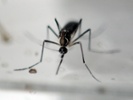|
Introduction
You may have noticed your newsletter looks different today. The SmartBrief team has been hard at work designing a more intuitive, accessible experience for professionals like you. Read more about the project, and use the feedback link at the bottom of the newsletter to let us know what you think!
|
Women's Health Update
Significant disparities in cervical cancer incidence and mortality in counties with low screening coverage, particularly in rural and lower-income areas, according to a study in JAMA Network Open. The findings emphasize that targeted screening programs are crucial in these regions to address the higher rates of late-stage diagnoses and mortality.
|
|
 |
| (Pixabay) |
Girls are experiencing menarche at increasingly younger ages, with a Harvard study in JAMA Network Open showing a decline from 12.5 years to 11.9 years from 1950 to 2005. The onset of menarche at younger ages is associated with increased health risks including obesity, type 2 diabetes, and cardiovascular diseases.
|
Health Policy and Trends
A Kaiser Family Foundation poll shows that 55% of US adults use social media for health information, with higher numbers among younger, Black and Hispanic individuals. A significant number of users encounter posts about weight loss, diet, or mental health regardless of their intent to seek such information. The poll also shows, however, that less than 10% of the social media users trust the content.
|
|
 |
| Aedes mosquito (Marvin Recinos/AFP/Getty Images) |
Mosquito-borne diseases such as dengue, chikungunya and Zika are spreading beyond tropical areas, driven by population mobility, climate change and global trade, and outbreaks are now occurring more frequently and in new geographic areas, including Europe and North America. Experts, including Jan C. Semenza from Umea University, Rubens Belfort Jr. from the Federal University of Sao Paulo and Lyle Petersen from the CDC are calling for increased public awareness, better surveillance systems and more investment in vaccine development.
Data from the National Council of State Boards of Nursing and the 2024 Census showed Washington, D.C., had the most licensed nurses per capita, while Utah had the fewest. Overall, California had the highest number of licensed nurses, followed by Texas.
|
 
Professional Development
Ambient listening technology at Tampa General Hospital records and transcribes conversations during nurse-patient interactions, allowing key elements to be automatically added to patient charts. This technology helps nurses focus more on patient care by reducing the time spent on documentation.
Health systems are prioritizing operational efficiency by integrating AI and virtual care to extend capacity and save costs. MaineHealth and the Rush University System are focusing on restructuring processes and investing in technology to enhance performance, while Emory Healthcare is investing in workforce well-being to sustain performance.
An EHR "tune-up" may be beneficial for health systems seeking to reduce administrative burdens, says nurse Lisa Bragg, managing director at Impact Advisors. A tune-up involves assessing what EHR features are being used, what recent innovations have been integrated and how the technology can be optimized.
|
Leadership
|
|
 |
| (Unsplash) |
Common lousy meeting practices include filling PowerPoint slides with text, ignoring feedback, inviting irrelevant attendees, and avoiding decision-making. Meetings can also suffer from excessive length and lack of follow-up. To improve, organizers should focus on concise agendas and ensure relevant participation.
|
The most-clicked story in Tuesday's brief was ...
|
| Got this from a friend? Subscribe now and stay in the loop! |
|
.png) |
|
| |
Who Said It?
Hang on to your hat. Hang on to your hope. And wind the clock, for tomorrow is another day. |
W. Somerset Maugham or E. B. White
Check your answer here. |
|
| |
.png) |
|
|
